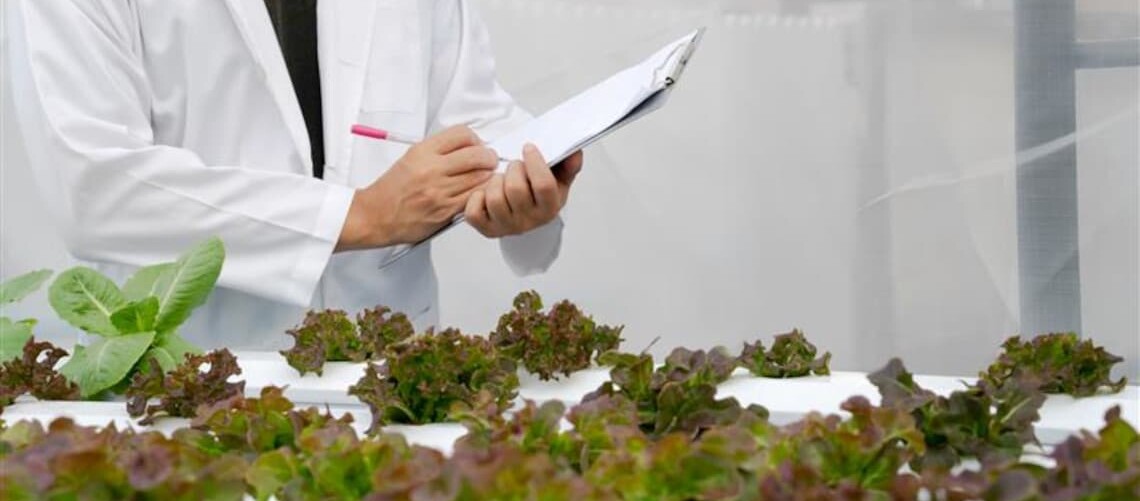More Than a Full Vegetable Net: Embracing Precision Nutrition with Foodceuticals
Foodceuticals, a term combining "food" and "pharmaceuticals," are part of a growing trend in precision nutrition, where foods are specifically designed to deliver targeted health benefits.
More than just filling our vegetable nets with healthy foods, science is advancing to a point where food itself becomes a form of medicine, designed not only to nourish but to treat and prevent health conditions.
These Foodceuticals can meet general health needs, such as boosting immune function, supporting heart health, or enhancing cognitive performance. They can also be tailored to individual health profiles, genetics, or lifestyles, providing a more customized approach to wellness.
To further enhance the effectiveness of these products, Foodceuticals are also benefiting from cutting-edge technologies. Innovations like nano-encapsulation, bio-fermentation, and the use of novel ingredients are being explored to improve nutrient delivery, bioavailability, and overall health outcomes, offering even greater potential for nutrition.
Optimizing Nutrient Delivery with Nano-Encapsulation in Foodceuticals
Advancing technologies like nano-encapsulation deliver nutrients with unparalleled precision and efficiency. It is an innovative process that packages nutrients at a microscopic level to improve bioavailability. By wrapping nutrients in ultra-small capsules, companies can ensure that essential compounds reach exactly where they’re needed in the body, significantly enhancing the impact of each dose.
For instance, studies show that nano-encapsulated curcumin (from turmeric) has a significantly greater anti-inflammatory effect due to improved absorption rates. This advancement allows Foodceuticals to offer more effective wellness solutions, maximizing benefits from smaller doses and advancing the role of nutrition in preventive health.
Harnessing Bio-Fermentation for Enhanced Benefits
Alongside nano-encapsulation, bio-fermentation represents another critical innovation in the Foodceuticals industry.
This technique relies on beneficial bacteria to enhance the nutritional quality of foods, creating products that support gut health, immune function, and even mental well-being. When foods undergo bio-fermentation, beneficial microbes work to break down complex nutrients, making them easier for the body to absorb and utilize.
As a result, Bio-fermentation is particularly powerful because it supports the microbiome, the community of microorganisms in the digestive tract that plays a crucial role in overall health.
A balanced microbiome is associated with better digestion, improved mood, and increased immune resilience. Foodceuticals that incorporate bio-fermented ingredients can thus help prevent a variety of chronic conditions and contribute to a more balanced health ecosystem.

Exploring Novel Ingredients with Therapeutic Properties
The use of novel ingredients with therapeutic properties is also gaining momentum in the Foodceuticals space.
Researchers are increasingly turning to superfoods, adaptogens, and unique plant extracts to address specific health concerns. These natural ingredients offer targeted benefits, providing Foodceuticals with the potential to address physical and mental wellness.
Superfoods like maca and spirulina, bring scientifically backed benefits that can be seamlessly integrated into daily diets, making Foodceuticals a convenient solution for those seeking natural support for stress, energy, and mental clarity.
Furthermore, demand for natural, whole-food-based ingredients is replacing reliance on synthetic supplements, as consumers turn to Foodceuticals as a holistic approach to wellness.
The Push for Natural and Sustainable Solutions in Foodceuticals: from production to packaging
There’s a growing demand for products that not only offer therapeutic effects but also align with eco-friendly practices.
Consumers and companies alike are seeking Foodceuticals that reflect shared values, such as sustainable sourcing and minimized environmental impact, demonstrating that wellness now extends beyond personal health to encompass planetary well-being.
For example, beyond simply considering the quality of ingredients, attention is shifting toward the sourcing and production methods of these products. Many companies are now exploring sustainable and circular production methods that not only reduce environmental impact but also enhance product quality by preserving soil nutrients and biodiversity.
Circular economy principles are being applied in the Foodceuticals sector through strategies like sourcing renewable raw materials, minimizing waste during production, and designing for reuse.
Additionally, many companies are turning to biodegradable packaging and recycling packaging to ensure a responsible product lifecycle, further reducing waste and closing the loop on resources. By prioritizing sustainability at every stage, Foodceuticals brands are aligning with the values of today’s environmentally aware, health-conscious consumers.

Challenges in the Recipe for Foodceuticals
As Foodceuticals evolve, the industry faces a unique set of challenges that must be addressed to ensure sustainable growth and long-term impact. One of the primary obstacles lies in scaling production while maintaining high standards for ingredient quality and sustainability.
As consumer demand for these products grows, sourcing sufficient quantities of high-quality, natural ingredients without depleting resources or harming ecosystems presents an ongoing dilemma. Sustainable production at scale requires constant innovation, particularly in ingredient sourcing and supply chain management, to avoid placing excessive strain on the environment.
Another challenge is navigating regulatory frameworks, which can vary significantly across regions and often struggle to keep up with rapid advancements in food and health technologies. Establishing consistent standards for safety, efficacy, and labeling will be essential for building consumer trust and preventing misinformation.
The Future of Foodceuticals: Pioneering New Frontiers in Health and Sustainability
As Foodceuticals continue to evolve, the path ahead invites bold discussions and innovations. One promising area is the exploration of entirely new plant-based ingredients and underutilized resources, which could expand the therapeutic applications of Foodceuticals while addressing sustainability goals.
Future advancements in Foodceuticals may also bring questions about their integration within healthcare, from preventive strategies to potential partnerships with medical professionals. How might Foodceuticals fit into mainstream healthcare practices, and what role could they play in global health initiatives?
The future of Foodceuticals is filled with possibility, offering a vision of wellness that connects individual health, environmental stewardship, and groundbreaking science. As we look to the years ahead, these innovations hold the potential to redefine what it means to nourish both the people and the planet.


